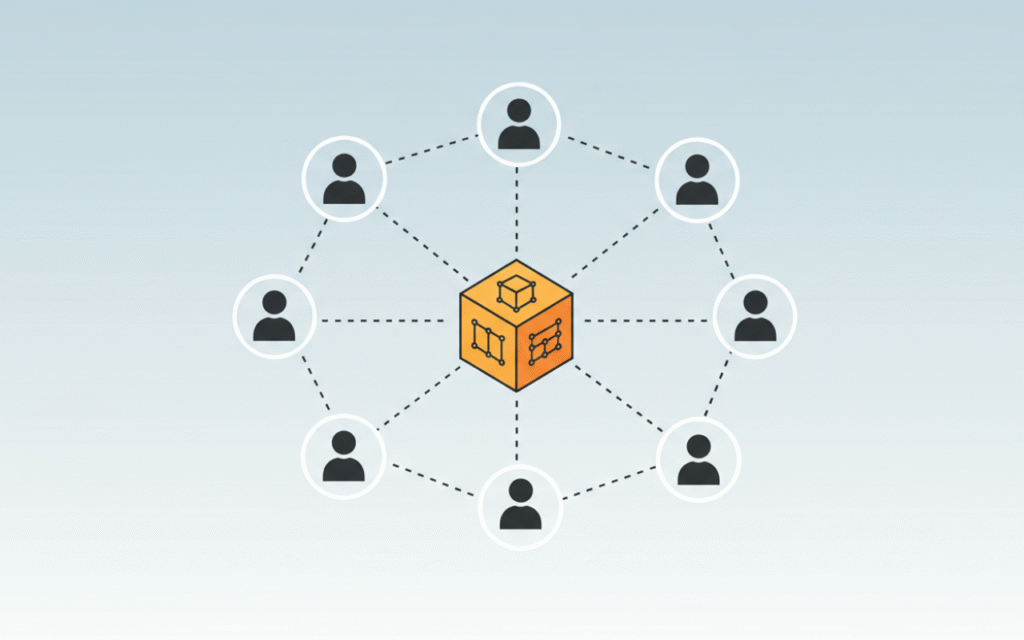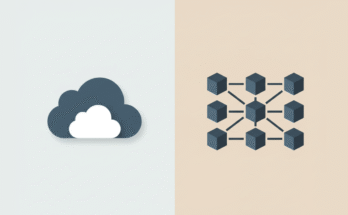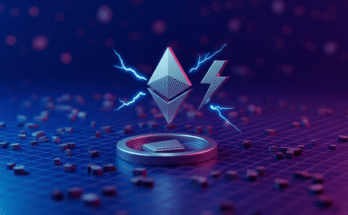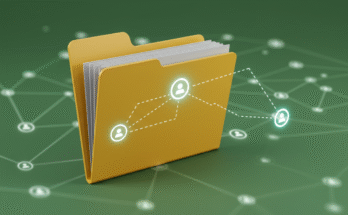In recent years, you may have come across the term “DAO” in conversations about cryptocurrency, blockchain, or the future of organizations. But what exactly is a DAO, and why is it creating such a buzz? Let’s break it down in simple terms and explore why this concept is reshaping how we think about collaboration, governance, and decision-making.

What Is a DAO?
DAO stands for Decentralized Autonomous Organization. At its core, a DAO is an organization that operates without centralized leadership. Instead of relying on traditional hierarchies or management structures, DAOs are governed by smart contracts, self-executing pieces of code that run on a blockchain. These smart contracts enforce rules and facilitate decision-making within the organization.
In simpler terms, think of a DAO as a digital entity where decisions are made collectively by its members, not by a CEO or board of directors. The rules of the organization are transparent, tamper-proof, and encoded on the blockchain for everyone to see.
How Does a DAO Work?
DAOs operate on blockchain technology, which is the backbone of cryptocurrencies like Bitcoin and Ethereum. Here’s a step by step breakdown of how a DAO functions:
- Smart Contracts: The foundation of every DAO is its smart contract. This code outlines the organization’s rules, voting processes, and how funds are managed. Once deployed on the blockchain, these rules cannot be easily altered without member consensus.
- Token-Based Membership: Most DAOs issue tokens to their members. These tokens often represent voting power within the organization. The more tokens you hold, the greater your influence in decision making (though some DAOs aim to prevent disproportionate control by capping voting power).
- Proposals and Voting: Members can propose changes, initiatives, or investments. Proposals are then voted on by token holders. For example, if a DAO is focused on funding creative projects, members might vote on which projects to support.
- Decentralized Governance: Unlike traditional organizations where decisions are made by a select few at the top, DAOs distribute power among all participating members. This ensures that everyone has a voice and decisions are made collectively.
- Transparency: Since DAOs operate on the blockchain, all transactions and decisions are recorded publicly. This level of transparency builds trust among members and reduces the risk of corruption or mismanagement.
Why Are DAOs Important?
→ DAOs are revolutionary because they challenge traditional organizational structures in several ways:
1. Decentralization
In most organizations today, power is concentrated in the hands of a few individuals or entities. DAOs flip this model by distributing authority across all members. This decentralization reduces the risk of biased decision-making and creates a more democratic system.
2. Transparency
Because all activities within a DAO are recorded on the blockchain, there’s little room for shady dealings or behind-the-scenes manipulation. Members can track how funds are spent and see exactly how decisions were made.
3. Global Accessibility
DAOs are borderless by nature. Anyone with an internet connection can join and participate, making them accessible to people from all over the world. This inclusivity fosters diverse perspectives and collaboration.
4. Efficiency
Traditional organizations often involve layers of bureaucracy that slow down decision making processes. DAOs streamline governance through automated smart contracts and direct voting mechanisms, which can lead to faster outcomes.
5. Empowering Communities
DAOs empower individuals to come together around shared goals or interests without needing intermediaries like banks, governments, or corporations. Whether it’s funding art projects, managing investments, or supporting social causes, DAOs give communities the tools to self-organize effectively.
Real-World Examples of DAOs
→ Still wondering how DAOs work in practice? Here are some real-world examples that showcase their versatility:
- MakerDAO: One of the most well-known DAOs in the crypto world, MakerDAO manages the DAI stablecoin. Members vote on key decisions related to monetary policy and risk management.
- Friends With Benefits (FWB): A social DAO where members use tokens to access exclusive events, content, and networking opportunities. It’s like a digital members only club.
- PleasrDAO: Focused on acquiring and curating digital art and NFTs (non-fungible tokens), PleasrDAO pools resources from its members to make collective purchases.
- Gitcoin DAO: A platform that funds open-source software development through community driven grants and initiatives.
- ConstitutionDAO: In late 2021, this DAO made headlines when it raised over $40 million to bid on an original copy of the U.S. Constitution at auction (though ultimately they were outbid).
These examples highlight just how diverse DAOs can be, whether it’s managing financial assets, fostering creative communities, or pursuing ambitious goals.
Challenges Facing DAOs
→ While DAOs offer exciting possibilities, they’re not without their challenges:
- Legal Uncertainty: Since DAOs operate outside traditional frameworks, their legal status is often murky. Governments are still figuring out how to regulate them.
- Scalability: As DAOs grow in size, decision making can become slower and more complex due to the sheer number of participants.
- Security Risks: Smart contracts are not foolproof and can be vulnerable to bugs or hacks. A notable example is “The DAO” hack in 2016, which resulted in millions of dollars being stolen.
- Coordination Issues: Reaching consensus in a decentralized system can be tricky, especially when members have differing opinions or priorities.
- Token Inequality: In some cases, those who hold more tokens can exert disproportionate influence over decisions, which may undermine the democratic ideals of a DAO.
The Future of DAOs
Despite these challenges, DAOs represent an exciting step forward in how we organize and collaborate as humans. As blockchain technology continues to mature and more people become familiar with decentralized systems, DAOs could play a significant role in shaping industries like finance, art, gaming, philanthropy, and beyond.
Imagine a future where you could co-own a company with thousands of people across the globe or contribute to environmental initiatives without relying on traditional NGOs all through a DAO. It’s a vision that feels futuristic yet increasingly within reach.
Conclusion
DAOs are still in their early days, but they hold immense potential to redefine how we work together as communities and organizations. By leveraging blockchain technology and collective decision-making, DAOs offer a glimpse into a more transparent, inclusive, and decentralized future.



